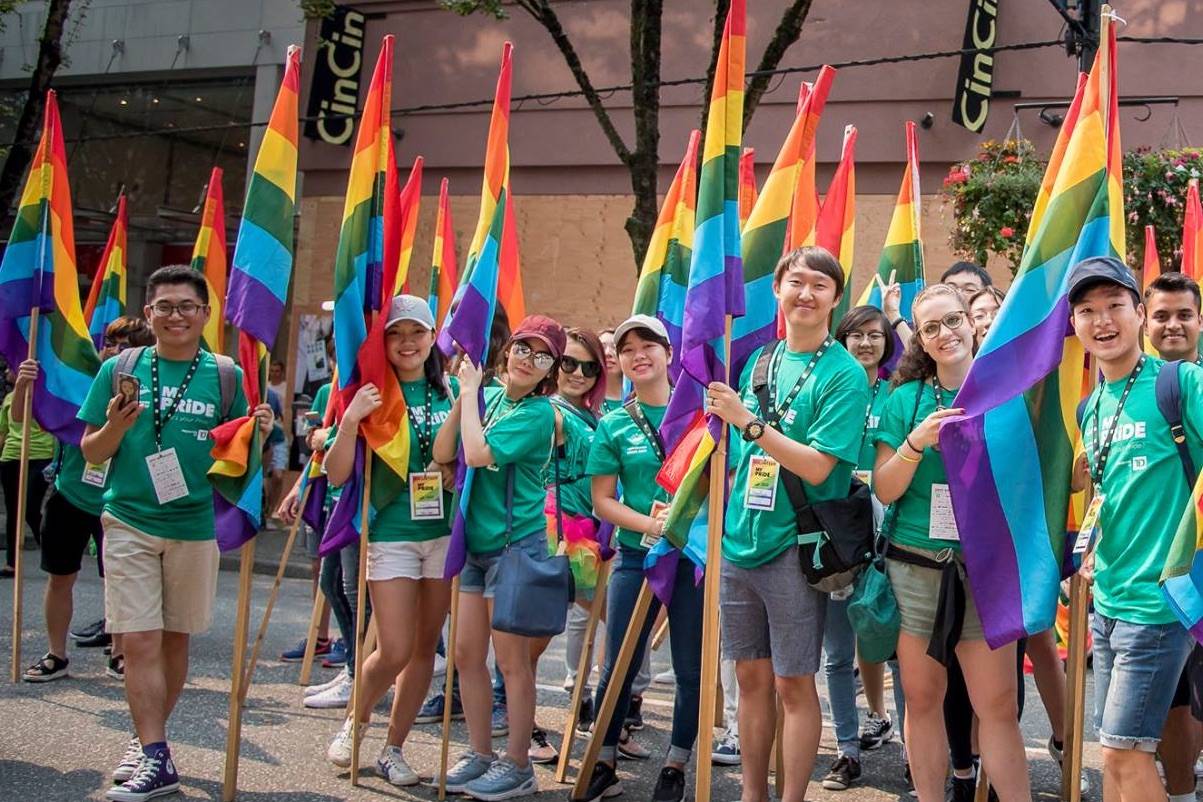There won’t be any uniformed police officers marching alongside the colourful floats in Vancouver’s Pride parade next August.
Andrea Arnot, executive director of the Vancouver Pride Society, says the group has decided not to allow uniformed officers, police vehicles or weapons in the annual parade.
She says the decision was made in September after more than a year of community consultations where members of the LGBTQ community told board members they were uncomfortable seeing uniformed officers or police vehicles at the event because of historic police oppression.
Plainclothes officers will be welcome to march with the City of Vancouver’s parade entry and Arnot notes many officers are strong allies of the LGBTQ community.
Vancouver Pride spoke with the police force about the decision in September and Arnot says they found the officers very receptive.
The Vancouver Police Department did not immediately respond to requests for comment.
Related: LGBTQ advocates want military, RCMP to take part in apology
Vancouver Pride’s decision follows similar moves across the country after the Toronto chapter of Black Lives Matter halted the city’s parade in 2016, demanding Pride organizers agreed to a list of conditions, including a ban on uniformed police.
Black Lives Matter has argued that allowing uniformed officers at the parade could discourage marginalized communities from attending.
Forces in Calgary, Ottawa and Toronto were all asked to leave their uniforms at home for Pride festivities this summer.
Vancouver Pride came to a compromise with the police department this year, where the majority of the officers marching were not in uniform and no vehicles were included in the parade.
But Arnot said the move has never been about excluding police.
“When we started out with these conversations way back in 2016, our intent was not to ban the police from the parade,” she said. “It was how to have the police participate in a way that makes everyone feel comfortable and for them to show their support in a different way.”
Reaching the decision has been a long, often uncomfortable process, Arnot said, noting that the board and staff spoke to more than 300 people in the community consultation process.
“I’m really glad that we’ve been able to move things forward,” she said.
Gemma Karstens-Smith, The Canadian Press



